Hansi Flick has weighed in on the club-vs-country tug of war, stressing that elite players will play for their national teams but minute management must be coordinated. Barcelona, meanwhile, have taken a firm stance: Marc Bernal was withdrawn from Spain U-21 upon the club’s request, while the Lamine Yamal debate rages after claims in Spanish media that his call-up strained relations. Barça also dropped their squad list ahead of Sevilla, signaling they will prioritize player welfare during a congested calendar. The message from Catalonia is clear: collaboration over confrontation—without compromising player health or Barcelona’s season objectives.
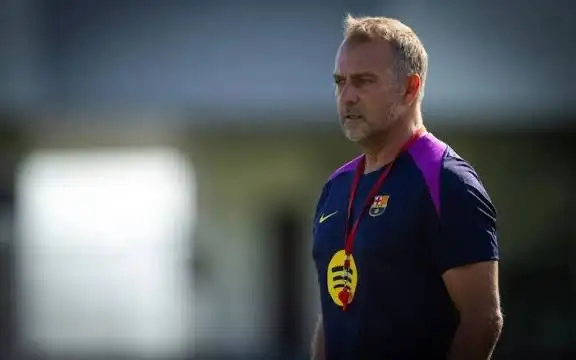
The discussion surfaced around Barcelona’s pre-match media availability and squad release for the Sevilla clash, amid a dense early-season fixture list and an international window ahead. Spanish media commentary intensified the spotlight on Lamine Yamal’s workload and the Spanish FA’s selections. In parallel, Barcelona requested and obtained Marc Bernal’s exclusion from Spain U-21 to carefully manage his progression and match minutes. The situation reflects ongoing calendar pressures and heightened sensitivity to overuse risks for young and key first-team contributors.
🎙️ Flick on distribution of minutes 🗣️: "It's part of the life of a very good footballer. Anyone wants to play for the national team. You have to manage the minutes together. If a player is good and important to his national team, he'll play. It's good to have players with their
@Barca_Buzz
Impact Analysis
The immediate impact falls on workload governance for Barcelona’s most used and youngest assets. Under Hansi Flick, Barça seek to enforce a single, coherent plan across club and federation to minimize fatigue peaks. This is especially pertinent for Lamine Yamal, whose explosive rise collides with the unforgiving match calendar. By successfully withdrawing Marc Bernal from U-21 duty, the club is signaling a line in the sand: development pathways will be curated internally, and national-team call-ups must reflect individualized readiness rather than blanket prestige.
Sporting-wise, this stance could yield steadier availability across La Liga and European nights, stabilizing tactical consistency and protecting high-impact profiles from soft-tissue knock-on effects. It also strengthens the high-performance department’s influence, as biometric thresholds and recovery windows increasingly dictate selection. Politically, the posture invites friction with national selectors, but it also nudges all parties toward data-led compromises—minute caps, managed substitutions, and tailored training loads during camps.
Longer term, Barcelona’s approach can become a template for elite clubs: negotiate granular usage plans for teenagers and high-minute starters, backed by medical benchmarks. The reputational risk—being seen as obstructive—exists, yet if player outcomes improve, the narrative shifts from defiance to best-practice stewardship. For Spain, engaging collaboratively preserves player peaks for major tournaments while avoiding burnout narratives that can overshadow results.
Reaction
Fan discourse split along familiar lines. Barcelona supporters broadly applaud Flick’s clarity and the club’s hard line on welfare—many cite past seasons where overuse yielded spring-time injuries and lost momentum. Comments echo the sentiment that young stars should be protected, with several pointing to emerging cases across Europe as cautionary tales. The withdrawal of Marc Bernal from U-21 duty is hailed as a pragmatic, future-proofing move rather than a snub.
On the Spain side, some argue international caps are integral to identity and growth, urging trust in the national setup. Others, however, concede that bespoke minute plans are sensible in an era of relentless scheduling. A prominent media claim that the Yamal call-up strained Barça relations amplified debate: Barça-leaning voices viewed it as avoidable provocation, while neutrals asked for cooler heads and evidence-led coordination.
There’s also a practical chorus: if the federation and clubs codify minute thresholds before the break, flashpoints vanish. A minority of supporters floated transfer-market contingencies—adding a defender to offset potential overload elsewhere—though many see the core issue as governance, not personnel. Overall, the online temperature is high but trending toward a center: manage the minutes, protect the prodigies, and keep the season on track.
Social reactions
🚨| 𝐎𝐅𝐅𝐈𝐂𝐈𝐀𝐋: Marc Bernal is excluded from the Spain U-21 squad upon Barça's request to the RFEF. #fcblive 🇪🇸
BarçaTimes (@BarcaTimes)
De Le Funte not listening
SAALE (@SAALE01BARCA)
🚨❗️Joaquín Maroto (AS deputy director): "Luis de la Fuente called up Lamine Yamal just to piss off Barça, but Barça have responded firmly. "With Madrid, they’d never have done that. Madrid would tell them to go to hell. From this, they must learn to take better care of
Barça Universal (@BarcaUniversal)
Prediction
Short term, expect a memorandum-style framework between Barcelona’s performance staff and Spain’s medical and technical teams. That likely includes pre-agreed caps for players flagged as red-zone risks, recovery windows post-match, and clarity around substitution triggers. For Lamine Yamal, a hybrid plan—reduced training load during camp plus controlled minutes—appears the most politically feasible option that safeguards both his trajectory and Spain’s needs.
Barcelona will continue to selectively contest youth call-ups like Marc Bernal’s when internal metrics advise caution. If collaborative mechanisms stall, the club could escalate with formal medical documentation and public rationale, building consensus through transparency. Conversely, if Spain embrace shared data protocols, tensions should ebb and the narrative will pivot to a model of modern load-sharing.
Market-wise, ongoing whispers around reinforcing the back line—names like Nico Schlotterbeck inevitably surface—may gather momentum if overload risk translates into absences across the defensive unit. Still, the primary lever is sports science, not spending. By winter, expect fewer flashpoints, more standardized minute agreements, and a case study that other federations and top clubs emulate before major summer tournaments.
Latest today
- Manchester United eye Manu Koné for summer 2026 - a made-to-measure fit for Amorim's midfi...
- Ruben Amorim aligns with Jason Wilcox as Man United sharpen January transfer plan
- Ruben Amorim on 3-4-3: identity first - what it means for Manchester United and player rol...
- Amorim flags United injury crisis - Bruno, Mainoo, De Ligt, Maguire and Mount doubtful
Conclusion
Hansi Flick’s message is pragmatic: top players will play, so let’s manage it together. Barcelona’s execution—assertive with Bernal, measured around Yamal—shows a club determined to shield its core without igniting an avoidable feud. The crux isn’t sovereignty but synchronization: align sports science, selection, and scheduling ahead of time, and the storm dissipates.
If both sides lean into cooperation, Barça gain continuity and Spain retain peak performers when it matters. The alternative—public spats and ad hoc decisions—only feeds fatigue and injury narratives. With a heavy domestic and European slate looming, the smartest competitive edge is durability. Barcelona appear committed to that edge; the next step is for national-team staff to lock arms, trade data, and codify minute management so the game’s brightest can burn long, not out.







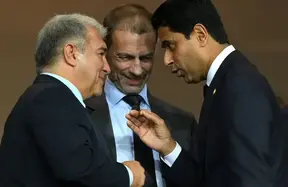
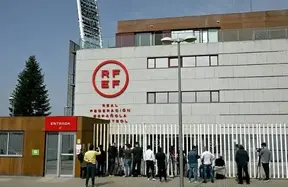

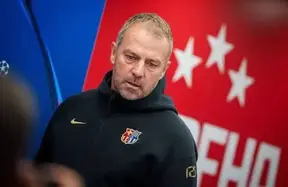

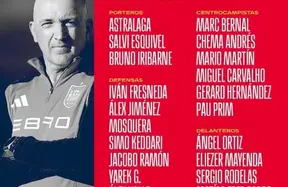
BarçaTimes
🚨| 𝐎𝐅𝐅𝐈𝐂𝐈𝐀𝐋: Marc Bernal is excluded from the Spain U-21 squad upon Barça's request to the RFEF. #fcblive 🇪🇸
SAALE
De Le Funte not listening
Barça Universal
🚨❗️Joaquín Maroto (AS deputy director): "Luis de la Fuente called up Lamine Yamal just to piss off Barça, but Barça have responded firmly. "With Madrid, they’d never have done that. Madrid would tell them to go to hell. From this, they must learn to take better care of
SemiAnalysis
PFAS-free is a big deal in semiconductors. Getting rid of “forever chemicals” seems like a clear win, right? Turns out it’s probably greenwashing: 🧵1/10